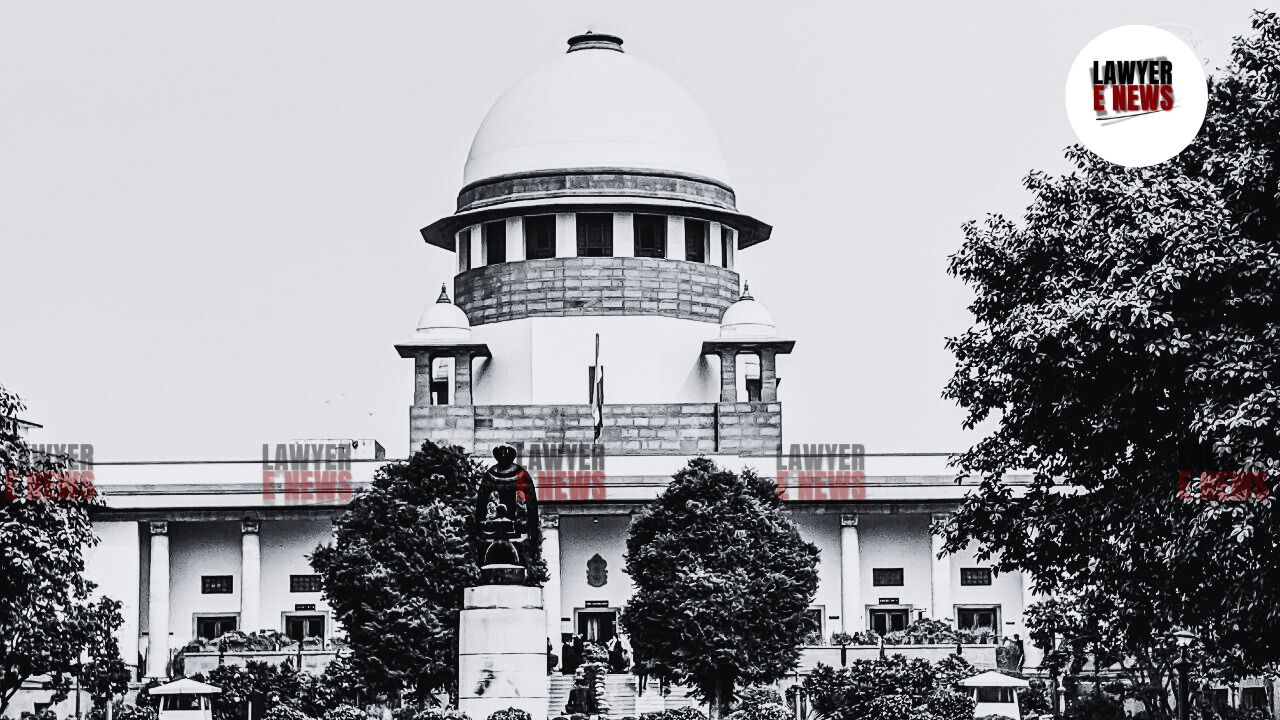-
by Admin
15 February 2026 5:35 AM



Supreme Court of India delivered a significant ruling in the case of Ratilal Jhaverbhai Parmar & Ors. v. State of Gujarat & Ors., Civil Appeal No. 11000 of 2024, setting aside an ante-dated judgment of the Gujarat High Court. The case highlighted disturbing trends regarding judicial conduct, specifically the delayed delivery of judgments and the failure of a High Court judge to follow prescribed judicial procedures.
Judicial Discipline Requires Promptness in Delivery of Judgments
In a stern reminder of judicial responsibility, the Supreme Court reiterated that "Judicial discipline requires promptness in delivery of judgments," a principle previously emphasized in various rulings, including Balaji Baliram Mupade v. State of Maharashtra. The Court lamented that despite repeated directions, the issue of delays in judgment pronouncement persists, aggravating the violation of Article 21 of the Constitution, which guarantees the right to a speedy trial.
The case originated from an order passed by the Deputy Collector, Kamrej Prant, Surat, which was challenged by the appellant, Ratilal Jhaverbhai Parmar, under Article 227 of the Constitution of India. The matter was heard by the Gujarat High Court on 1st March 2023, where the learned judge orally pronounced the dismissal of the petition but did not immediately provide the detailed reasons for the decision. More than a year later, on 30th April 2024, the appellant’s counsel received a reasoned order signed and uploaded as if it had been issued on 1st March 2023, thus raising serious concerns about the integrity of judicial procedure.
"Reasons Followed One Year Later—A Breach of Judicial Ethics"
The Supreme Court found it deeply problematic that the reasoned order was dictated on 12th April 2024 but was ante-dated to 1st March 2023. The Court expressed its disapproval of this practice, stating that the learned judge had "ceased to retain jurisdiction over the petition" once the oral dismissal had been pronounced. The Court emphasized that reasons for a judgment must either follow promptly or the matter should be reconsidered by the court. In this case, the judge’s failure to follow these norms was viewed as a breach of judicial ethics.
The primary legal question revolved around whether the Gujarat High Court's delayed and ante-dated judgment violated the principles of natural justice and judicial propriety. The Supreme Court also addressed the broader issue of delayed judgments and their implications for the administration of justice, noting that "such delays not only prejudice the parties but also bring the judiciary into disrepute."
The Court referred to the earlier ruling in Anil Rai v. State of Bihar (2001), where it was held that a delay in delivering judgments violates Article 21 and adversely affects the administration of justice. It further noted that the High Court's failure to promptly provide reasons deprived the appellant of the opportunity to seek redressal before a higher court.
The Supreme Court, in its judgment, set aside the 1st March 2023 order of the Gujarat High Court, reviving the appellant’s petition for reconsideration. The Hon'ble Chief Justice of the Gujarat High Court was directed to assign the case to a different judge for fresh adjudication.
The judgment made it clear that the revived petition should be considered without any influence from the observations made in the impugned, now-invalidated, order. The Court also underscored that it had not addressed the merits of the underlying dispute and confined itself to issues related to the procedural irregularities of the High Court.
Upholding Judicial Integrity
The Supreme Court's ruling serves as a critical reminder of the importance of timely and transparent judicial processes. It stressed that the judiciary must remain an "epitome of unimpeachable integrity and unwavering principles" and that any deviation from established judicial norms could severely harm the trust placed in the courts by the public. The judgment also underscores the necessity for courts to deliver reasons for their decisions within a reasonable timeframe to avoid undermining the litigants' right to appeal and the overall credibility of the justice system.
Date of Decision: 21st October 2024
Ratilal Jhaverbhai Parmar & Ors. v. State of Gujarat & Ors
